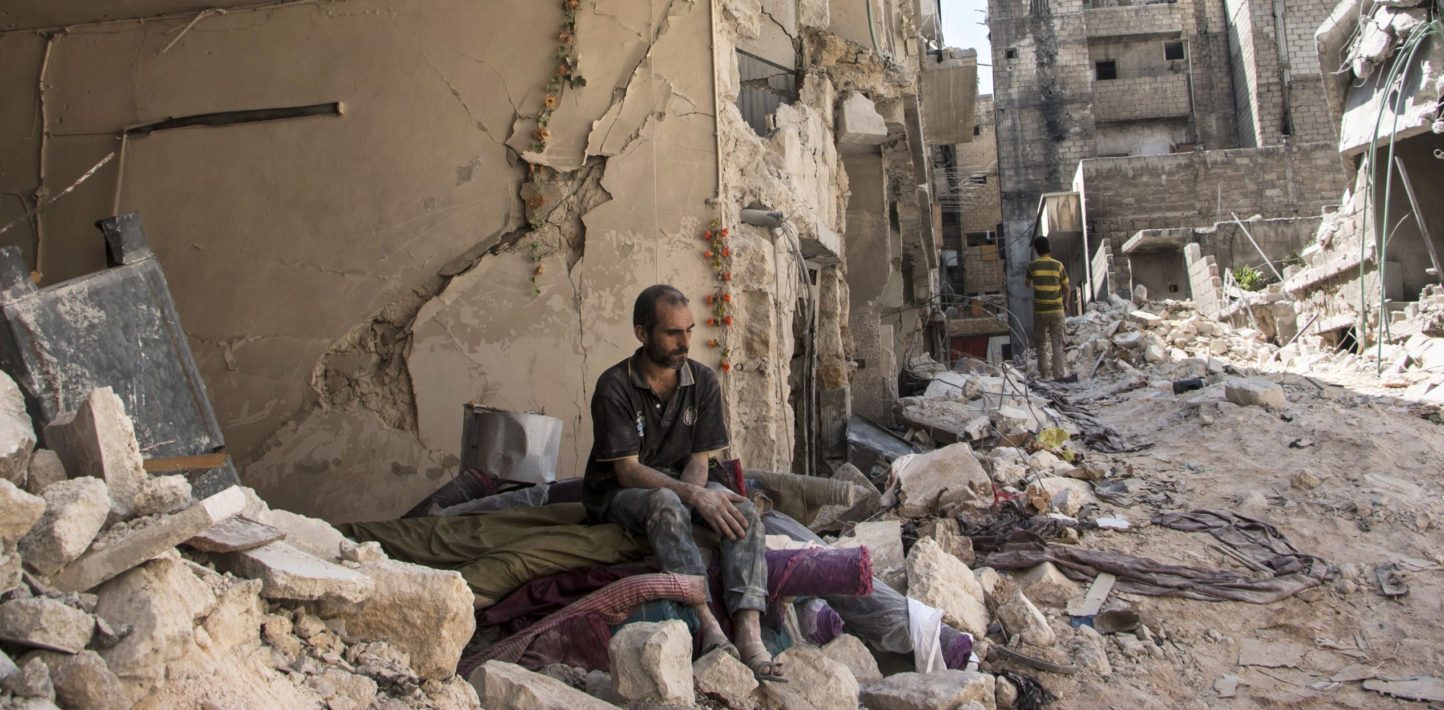By Diana Semaan Syria campaigner at Amnesty International
With reports in the news of a new push for negotiations to end the conflict in Syria, and Western countries contemplating the future of Syria and Bashar al-Assad as Russia engages in combat, a crucially important goal—accountability for countless war crimes and other violations committed by all sides in this conflict—appears to be slipping off the agenda.
Despite an international outcry over the killing of civilians by the Syrian government, in reality most of the world—including Western governments—have turned a blind eye to events in the country, utterly failing to agree on effective measures to protect civilians from the brutality of the Syrian government.
Their main priority appears to be combating the armed group calling itself the Islamic State and keeping refugees from reaching their borders. Any pursuit of accountability for war crimes and crimes against humanity has taken a back seat.
Sadly, for Syrians, this can only mean that their suffering will continue unabated as perpetrators feel safe in the knowledge that their crimes will go unpunished, with the prospects of obtaining justice for victims and their families merely a dream.Syrian President Bashar al-Assad’s forces have bombarded civilians in their homes, schools, hospitals and public markets on a daily basis—in deliberate and indiscriminate attacks.
According to local monitors, more than 47,000 civilians have been killed since 2011 by shelling and air strikes. Residents and activists from Aleppo, Idlib and Damascus regularly describe to me the terror of living under a barrage of barrel bombs, missiles and rockets, as well as the fear generated simply by the sound of a fighter jet or a helicopter overhead.
Fahed was one of the first people I spoke to, as part of my duties with Amnesty International, when government helicopters dropped the first barrel bombs in 2012. He refused to leave the city of Aleppo despite living under the horrors of daily aerial attacks.
He described horrific scenes—the bodies of children, women and men lying on the ground; students killed in schools; ambulances targeted while rescuing people; and field hospitals completely destroyed.
For more than three years, Fahed relentlessly reported on these attacks. He repeatedly told me that he would not stop until the international community and the United Nations took action. He was unable to fulfil his aspirations. In June, he was killed by a barrel bomb and became yet another name on the long list of civilians killed at the hands of the Syrian authorities.
The Syrian government’s vicious tactics are also unleashed behind closed doors. Extrajudicial executions, enforced disappearances, arbitrary arrests, detention and torture are part of daily life in Syria and are practised on an industrial scale. The victims include thousands of peaceful activists, journalists, human rights defenders, humanitarian workers and children. More than 60,000 people have been forcibly disappeared, and their families suffer the constant agony of not knowing the fate of their loved ones.
Issam, a volunteer in a field hospital in Easter Ghouta, was detained by the security forces for two years, accused of aiding “terrorists.” He told me that he was tortured for two weeks until he gave the security forces names of people he worked with at the field hospital. He thought that the torture would stop but it didn’t. He said: “I wish I had been killed by an air strike. It would have been a quick death. It is much better than spending two years of my life in a dungeon hearing the sound of people screaming.”
A lack of medicine, food, clean water, electricity and other crucial necessities has exacerbated the suffering of Syria’s civilians. The war has left millions of people across Syria unable to provide for themselves or their families.
While Assad and officials in Damascus enjoy easy access to good food, clean water, and electricity little more than 13 kilometres away, thousands of families in Eastern Ghouta are trapped under siege amidst air attacks, hunger and despair. Why? Simply because the Syrian government has blocked U.N. and other humanitarian agencies from entering and distributing aid to the besieged areas.
The Syrian government is causing widespread suffering and bloodshed across Syria while the international community watches from a distance.
Right now the focus of the international community should be alleviating the suffering of the Syrian people and ensuring that all parties to the conflict understand that anyone suspected of ordering committing war crimes or crimes against humanity—whether government forces or armed groups—is going to be brought to justice. The situation in Syria must be referred to the International Criminal Court without delay. Talks and compromise can never come at the cost of impunity for crimes under international law.
When will world leaders adopt concrete measures to end the excruciating suffering of Syrians? Syrians repeatedly ask me this fundamental question—sadly, I find myself unable to answer it.
This article was first published by Newsweek


